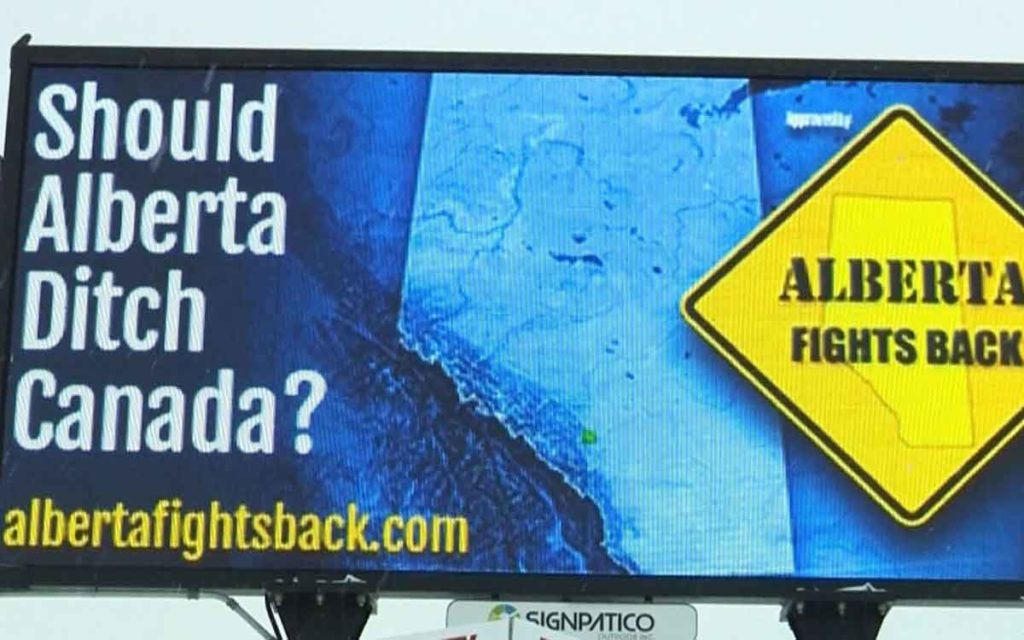
The sentiment for western separation remains strong argues Kelly Gallagher.
After the 2019 federal election, many westerners were despondent over the results. The lead up to election day showed that the Conservative Party led by Andrew Scheer would pull off a win, more than likely a minority government. That was what conventional wisdom was showing in the west. The Trudeau Liberals have hammered the western economy since taking office in 2015, especially in the energy sector and to many western Canadian voters the election was going to put a stop to anti-energy policies coming out of Ottawa. The Trudeau Liberals won the election as a minority government from support in the Maritimes, Quebec and Ontario. As for the west, you can drive from Winnipeg to Vancouver and not cross through a single Liberal held riding in-between those two cities.
Western separation has always been a sentiment that bubbles up over time. When Trudeau’s father was Prime Minister, he introduced the National Energy Program (NEP) which cost the economy of Alberta between $50 to $100 billion. Although the memory of the NEP faded over time, Albertans never truly forgot nor forgave the federal Liberal Party. In the 2015 federal election, the Liberals won four ridings in Alberta which led some to see this as a sign that after decades of anger Alberta voters were slowly warming to the Liberals as an alternative. As each year went by, this observation did not fare well. Every Liberal Member of Parliament in Alberta and Saskatchewan recently lost. By where things stand today, this political wilderness for the federal Liberals will last a very long time.
Immediately after the federal election, separatist sentiment and movements sprung up in western Canada to form the “Wexit” movement. Petitions, rallies and ad campaigns became part of the drive to build momentum for western Canada’s separation. The national Wexit party has received official party status and plans to run 104 candidates in the next federal election. Wexit has also received official provincial party status in British Columbia, Alberta and Saskatchewan. Saskatchewan Wexit has already committed to running candidates in the 2020 provincial election.
The Wexit movement is a mix of the old Western Canada Independence and Reform parties. While the core of the movement focusses on economic independence, elements of social conservatism lives in the movement’s policy which eclipses the economic message. The leader of the federal Wexit party is the former leader of the Christian Heritage Party, a single issue fringe party. Rather than being accepted as a grassroots movement, Wexit appears as another vehicle for malcontents who jump from party to party.
Western Canadians have long felt alienated by a federal government that is viewed as serving the interests of eastern Canada over the rest of confederation. That sentiment is stronger than it has ever been due to the targeting by the federal government of a key economic driver of western Canada, the oil and gas industry. Wexit is not an immediate threat to confederation however if the movement were given legitimacy via real leadership all bets would be off.
Kelly Gallagher is the latest edition to The Niagara Independent’s team. He has been a partner with Martin Charlton Communications in Saskatchewan since 2005. From 2006 to 2007 Kelly took leave from the company to serve as Director of Regional Affairs for the federal regional minister for Saskatchewan. Following this, he served as Chief of Staff to four provincial Cabinet Ministers from 2007 to 2012.
Kelly also has years of experience working in communications with the Government of British Columbia and Environment Canada as well as experience in the Saskatchewan media.

Kelly Gallagher has been a partner with Martin Charlton Communications in Saskatchewan since 2005. From 2006 to 2007 Kelly took leave from the company to serve as Director of Regional Affairs for the federal regional minister for Saskatchewan. Following this, he served as Chief of Staff to four provincial Cabinet Ministers from 2007 to 2012.
Kelly also has years of experience working in communications with the Government of British Columbia and Environment Canada as well as experience in the Saskatchewan media.




















